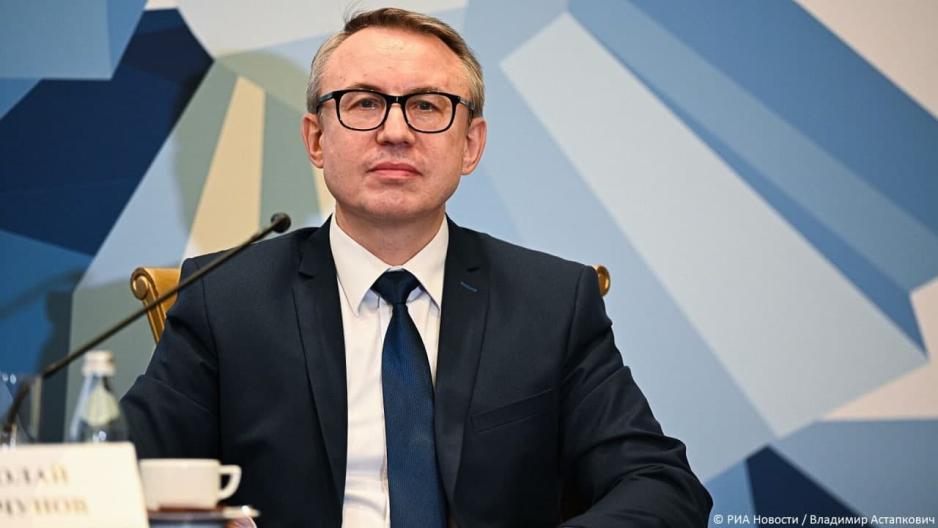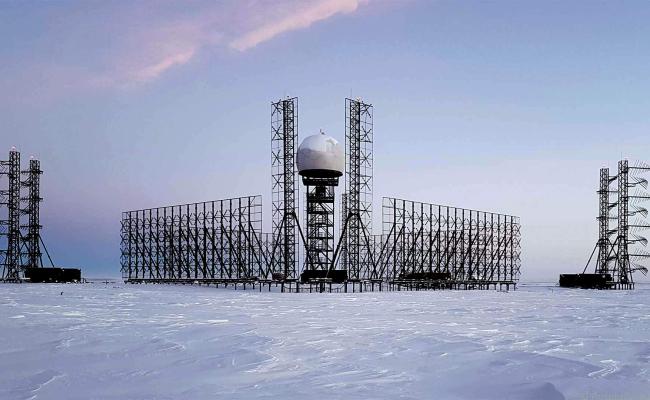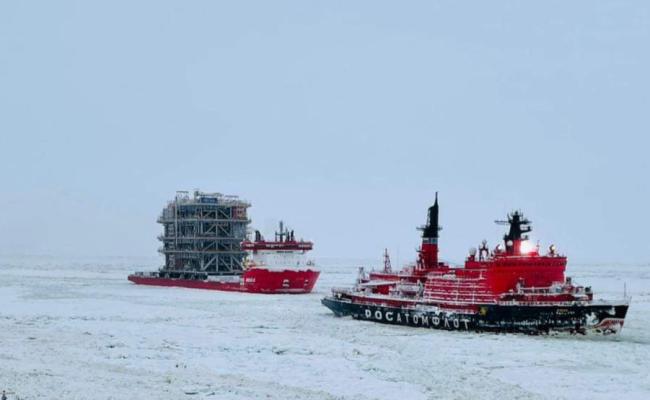Russian Arctic Official: “We will Take Military Measures to Prevent Threats to Navigation Along the NSR”

Nikolai Korchunov at Ecumene 2022 in Moscow. (Screenshot from Ecumene 2022)
“Russia is taking all necessary military measures to prevent threats to civilian navigation along the Northern Sea Route”, says Russias Arctic Ambassador Nikolai Korchunov.
“Russia is taking all necessary military measures to prevent threats to civilian navigation along the Northern Sea Route (NSR)”, states Ambassador at Large of the Ministry of Foreign Affairs of the Russian Federation and Chairman of the Committee of Senior Officials of the Arctic Council Nikolai Korchunov in an interview with Russian State News Agency TASS during the Global Financial Forum (Ecumene 2022) in Moscow over the weekend.
In an interview with Finam.ru at the same event, Korchunov says he considers one of the main challenges in the Arctic, the growing military activity of NATO, and that the expansion of NATO with Sweden and Finland will not contribute to “security and mutual trust in the Arctic”.
“Unfortunately, we have recently noted an increase in military activity in the Arctic and non-Arctic NATO countries, in particular the UK, which is sometimes provocative. This trend carries the risk of unintentional incidents that can not only complicate the military-political situation in the Arctic, but also have an extremely negative impact on the state of the fragile ecosystem of the North”, says the Russia official to Finam.ru.
"I can assure you that all the necessary measures are being taken along the military line, which take into account NATO's increased activity in the Arctic in recent years and help prevent threats to civilian navigation in the waters of the Northern Sea Route," he says.
Impact of the sanctions
The Northern Sea Route is the shortest water route between the European part of Russia and the Far East. The length of the route from the Kara Gate to Providence Bay in the Bering Sea is about 5.6 thousand km.
Work is currently being established to replace foreign competencies in the Russian Arctic
The sea route is located in the territorial waters and the economic zone of Russia, where Russia feels the impact of the sanctions after the war in Ukraine.
Korchunov also states that the lack of interaction with other countries within the Arctic Council after the other states put the cooperation on hold, will not affect the implementation of measures to develop the NSR as planned.
Looking for replacements
"The lack of interaction with other Arctic countries cannot have a critical impact on the implementation measures for the development of the NSR", says Korchunov.
He adds that Russia continues the implementation of the Chairmanship Program and the Plan of Main Events, set out in the Fundamentals of the State Policy of the Russian Federation in the Arctic for the period until 2035 and the Strategy for the Development of the Arctic Zone of the Russian Federation until 2035.
"Accordingly, systematic work is currently being established to replace foreign competencies in the Russian Arctic, including by strengthening internal interaction and increasing its efficiency, says the Russian Arctic Ambassador.



